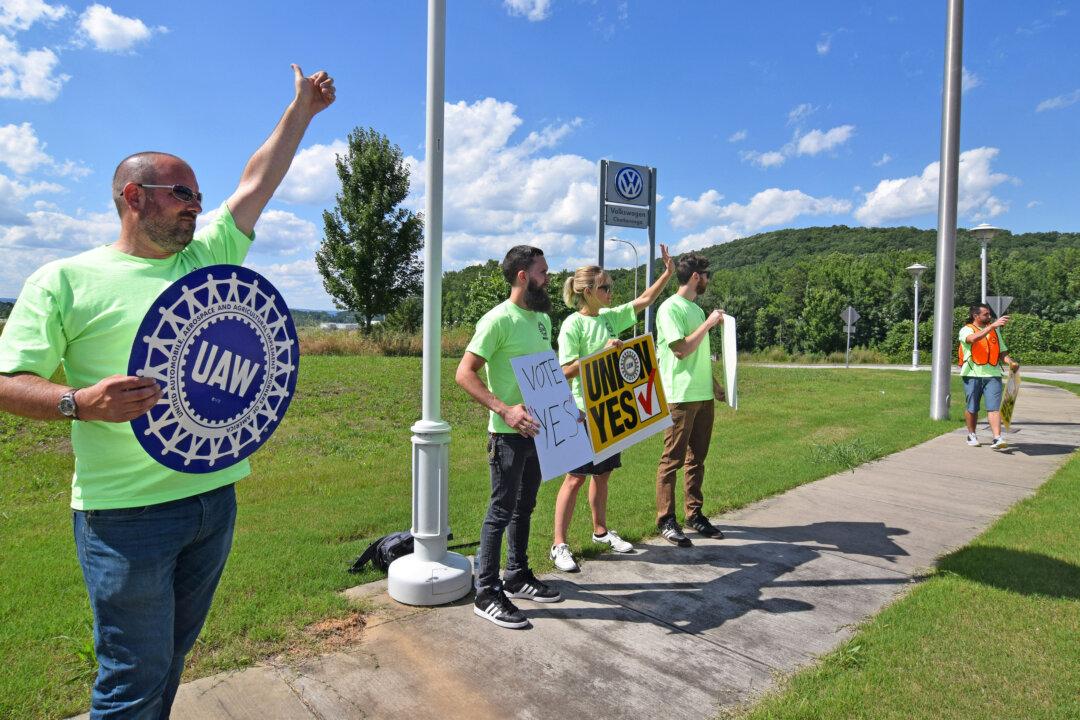Chattanooga, Tennessee, is known as “Gig City,” not for its many live music venues but for its role as the first city in the Western Hemisphere to offer 1 gigabit-per-second fiber internet service to residents and businesses, which it did in 2010.
In 2024, Chattanooga has come to be representative of a different movement—the labor movement in the South. An overwhelming vote by the city’s Volkswagen employees on April 19 to join the United Auto Workers (UAW) union was the first crack in a decades-long barrier holding back the labor movement south of the Mason-Dixon Line.





